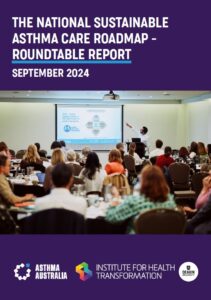The World Health Organization has labelled climate change as the defining issue for public health in the 21st century. Climate change is a major concern for asthma which can be caused by, and exacerbated by, conditions and events related to the warming climate. These include more frequent and prolonged bushfires which create smoke pollution, increased ozone at ground level, increased pollen production, rainfall and flooding events which cause mould growth and greater likelihood of thunderstorm asthma events.
The impacts of declining air quality are being experienced now making strong action to mitigate climate change an urgent priority. Adaptation actions are equally important because the impacts of past and current emissions are locked in. Failing to take robust action now will contribute to ongoing deterioration and make it harder—if not impossible—to mitigate or adapt to climate change impacts in the future.
People with asthma have told us that climate change is a priority for our advocacy. We now call on governments around Australia to accelerate their efforts to protect people with asthma by slashing greenhouse gas emissions and boosting adaptation efforts.
Read more about Asthma Australia’s policy recommendations in our policy position statement on climate change.
Click here to tell us what action you’d like us to take to address climate change.





 1800 278 462
1800 278 462



